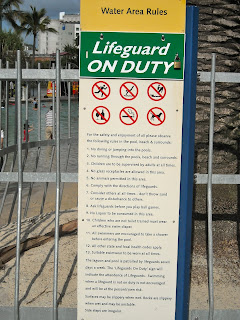When you move to a different country, inevitably and unsurprisingly there are regulations about how to set up your new life. And you have to become acquainted with your host country's procedures, concerning the provision of healthcare for example, which may seem unfathomable at first, if not for longer. Basic elements of life may be accompanied by unfamiliar rulebooks and, until you know the ropes, potential pitfalls may be lurking when you try to open a bank account, buy a car, rent property, set up accounts with utility companies, choose a mobile phone network provider, insure your belongings... and so on.
Rules don't always seem to be... how can I put it... born of absolute necessity. So, why can't I have the name by which I am known, and have used for decades on my bank account in the UK, on my bank account here? Because I have to use my birth name. So every time I call my bank, they call me Judith, which I loathe. And every time I have to correct them: 'My name is Jude'. You have to use that same name on airline tickets and tenancy applications. Now Australia is a very friendly place, and lots of people use your first name as soon as they start talking to you, so now everyone – from travel agents to property managers – calls me Judith.
I AM NOT JUDITH, I AM JUDE.
I have always believed that I come from a country full of signs in public places telling me what I can and cannot do. The UK has very many rules about all sorts of things: 'Don't walk on the grass'; 'No ball games'; 'Dancing is not permitted in aisles and gangways'; 'No diving or bombing'; 'Do not write anything outside the box', 'Stand to the right'; 'Glasses are not permitted in the auditorium'; 'No busking'; 'Jacket required'. (My friend despairs when signs each have their own post, rather than sharing, creating a forest of the damn things.) But when I came here, I found there were more.
When Captain Arthur Phillip founded the first penal colony in Port Jackson in 1788, he had 759 convicts under his jurisdiction. He had 211 marines and officers to keep them under control in challenging circumstances – not very productive soils, lots of pests and diseases, hostile natives and too few human resources (such as carpenters, engineers and horticulturalists). His primary concern was controlling his charges and, being a navy man, he imposed a fairly authoritarian regime that persisted after he left (in 1792) and during early colonisation, when food shortages especially posed a threat to stability within fledgling communities.
In Australians: Origins to Eureka (Vol 1), Thomas Keneally describes 'punishment field days' on the banks of the Brisbane River under the direction of 'notorious flogger' Captain Patrick Logan. '"Skulkers" and recalcitrants were selected... for ritual punishment – "fifty or a hundred lashes apiece" – in front of their fellow prisoners'. Keneally believes such a scene 'provides par excellence a tableau of the petty authoritarianism which would live on in Australian public affairs beyond convict times'.
Many systems and regulations in Australia since have been lifted directly from those in the mother country; some of them have been refined, others made more cumbersome. On occasion, we've had to remind ourselves that we're not at home; when we're in a post office, for instance.
So, some examples...
Most of us expect dress codes in certain places, but not necessarily in a not-so-posh venue in Charters Towers in northern Queensland...

...or a surf club in Rainbow Beach.

Also while on our travels, I would never have anticipated a limit on how long a break I could take during a day's drive...

...or be faced with this much reading matter when I park in order to admire Lake Wivenhoe.

Back in Brisbane, by the pool at South Bank, I wouldn't dream of running, diving or swimming in the altogether, but neither would it occur to me to brush up on 'all other state and local health codes'.

Nor would I consider having a punch-up or practicing my high kicks or Riverdance moves in a gondola on Brisbane's Wheel.

I do, however, appreciate the fact that Bribie Island council has worked out precisely how much it costs to clean up after its less-than-considerate visitors...

But I fear that the usually brilliant Brisbane City Council are getting a little too up close and personal...

I am not going to touch on rules of the road here, because driving in Australia warrants a post in its own right, but I must just briefly mention cats and dogs, all of whom have to be registered here. You must keep a dog on a lead in all public places except in dog off-leash areas – hey, I can run without fear of attack – and Brisbane Council will consider your dog a nuisance if it barks for six minutes in any hour between 7am and 10pm or for three minutes in any half-hour between 10pm and 7am (so don't forget to keep a stopwatch on your bedside table). And they recommend that you keep your cat in from 8 in the evening until 6 in the morning (to protect small wildlife). However, despite what my neighbour told me (he has a dog of the small yappy variety), there is no cat curfew in this city.
I will leave a potentially irksome subject on a humorous note, with a sign in New Farm Park, close by the dog off-leash area.

It is a joke, isn't it?







Looking for courier australia
ReplyDelete